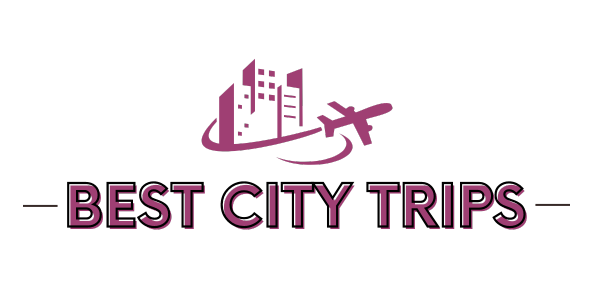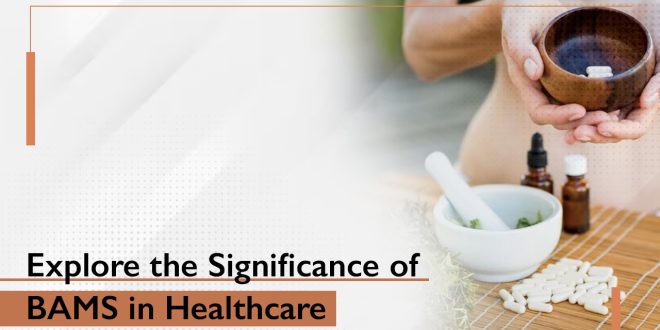Do you know that around 24 billion people in global nations are approaching Ayurveda for their healthcare needs?
A recent survey has highlighted that Ayurveda can turn into a major competitive healthcare sector for allopathy.
So, if Ayurveda is growing higher why not establish your career in it?
Feeling like yes? Then there are the details of the Ayurveda entry course, BAMS at top BAMS colleges in MP and other states. Get to know its significance in the healthcare industry.
What is BAMS?
BAMS, i.eBachelor of Ayurvedic Medicine and Surgery is an undergraduate-level Ayurvedic course offered at top colleges such as Sri Sai Institute of Ayurvedic Research & Medicine, one of the best BAMS colleges in Bhopal and others.
This course is the foundational level course in Ayurveda which is sought after by more than 24% of science stream students after 12th.
Here are the complete course details of BAMS at top BAMS colleges in Madhya Pradesh and others.
Course Description:
The BAMS course is the first step in Ayurvedic educational courses wherein students are educated on fundamental aspects of Ayurveda along with hands-on training. This course focuses on inculcating the foundation-level concepts of Ayurveda, including medical practices, treatments, herbal knowledge, diagnostic expertise, etc training students respectively.
The BAMS course is recognised by the Ministry of AYUSH(Ayurveda, Yoga & Naturopathy, Unani, Siddha, and Homeopathy) and more than 200 colleges in India are offering BAMS degrees.
Course Duration:
The BAMS course is offered for 5.5 years which is divided into 4.5 years of theory and 1 year of compulsory rotatory internship.
Eligibility Criteria:
The basic eligibility criteria to pursue BAMS at top ayurvedic colleges in MP and other states are as follows:
- Candidates should have completed 10+2 in any recognized board with physics, chemistry, and biology as compulsory subjects (Or) candidates should have completed a diploma in any of the above-mentioned subjects
- Candidates should have scored a minimum of 50% in the eligible course. A relaxation of 5% is provided for the reserved categories such as SC/ST/OBC.
- Candidates should be a minimum of 17 years of age.
Admission Procedure:
Admission to the BAMS degree at the best ayurvedic hospital in India is provided by considering the candidates’ scores in the NEET-UG examination conducted every year.
Syllabus:
The BAMS course syllabus is curated by expert Ayurveda professionals with the notion of providing students with high-quality Ayurvedic education.
Here is the syllabus for the BAMS degree at renowned Ayurvedic colleges in Bhopal and others.
| Year I | Year II |
| ● Padartha Vigyan And Ayurved Itihas
● Sanskrit ● Kriya Sharir ● Rachana Sharir ● Maulik Siddhant Avum Ashtanga Hridaya |
● Dravyaguna Vigyan
● Roga Nidan ● Rasashastra ● Charak Samhita ● Diseases of Rasa Vaha Srotas
|
| Year III | Year IV |
| ● Agadtantra
● Swasthavritta ● Prasuti Tantra Evum Stri Roga ● Kaumarbhritya Parichaya ● Charak Samhita (Uttarardha) |
● Kayachikitsa
● Panchakarma ● Shalya Tantra ● Shalakya Tantra ● Research Methodology And Medical Statistics
|
Moving on, here are the ultimate highlights of a BAMS degree in the healthcare industry.
Highlights of BAMS degree in the healthcare industry:
A BAMS degree makes a major contribution to the healthcare industry by educating and developing ayurvedic physicians who can extend great medical and healthcare services to the global population.
Here are some of the major roles played by BAMS in healthcare.
Holistic Medical Approach:
BAMS education introduces students to holistic medical approaches of Indian origin wherein you get to learn the best natural medical practices that do not have any interventions or artificial approaches.
BAMS considers healthcare not only in terms of physical means but also considers the mental and spiritual well-being of the individual thus holding a great place in healthcare.
Natural Treatment System:
The ability of BAMS, i.e. Ayurveda to provide a natural treatment agenda is a great contribution to healthcare.
Since ayurvedic medicines provided in ayurvedic centers and hospitals are of natural sources unlike those manufactured with chemical substances, people prefer them.
As sourced from nature directly, the chances of any repercussions due to medications are extremely negligible. Around 77.1% of the population accepts that ayurvedic medicines are from natural sources, according to a survey.
Preventive Caring Approach:
BAMS not only focuses on treating medical ailments but also cares about the protection and prevention aspects of health.
Ayurveda emphasizes preventive healthcare measures, including lifestyle modifications and dietary guidelines, to maintain health and prevent diseases. BAMS practitioners from top BAMS colleges in MP and other states educate patients on these preventive measures.
Personalized Treatment Support:
Unlike many other medical approaches, Ayurveda holds a great advantage in offering personalized treatment support to its patients. This is one of the noble roles of Ayurveda in healthcare.
Ayurveda always focuses on the root cause of the medical ailment and offers customized treatment based on their patient’s vadha, kappa, and pitha factors.
This personalized treatment support of Ayurveda is a major boon to the healthcare arena.
Integration with modern medicine:
While allopathy is focused on instant relief, Ayurveda focuses on sustainable cure. Valuing this aspect of Ayurveda, now allopathic pharmaceutical institutes are hiring BAMS graduates from top BAMS colleges in MP and other states as they have profound knowledge about different plant products, their molecular and chemical properties, and the best suitable extraction techniques. This incorporation of BAMS in allopathy will be a boon in the future for the allopathic industry as they will be able to manufacture more efficient medicines.
As you see, Ayurveda is a great contributor to the healthcare arena with remarkable undeniable significance.
Conclusion:
In conclusion, Ayurveda is a sign of our ancestral medicinal intelligence which will never sink. So why not pursue BAMS at leading BAMS colleges in MP and other states to make it your promising career?
FAQs:
- Does BAMS require NEET compulsorily?
Yes, admission to BAMS in any Ayurvedic medical college in India requires a NEET qualification.
- Is a BAMS degree tough?
The toughness of any course is dependent on the interest of the pursuing students. For students with a good interest in science, a BAMS degree is not tough.
- Does BAMS have scope in future?
Yes, BAMS has great scope in future as the global demand for Ayurveda medicine and products is significantly increasing. In addition, 170 countries out of 194 global nations have reported a notable population of their country opting for ayurvedic healthcare.
- What is the salary range of a BAMS doctor?
The average annual salary of a BAMS doctor in India is approximated to be INR 3.6 lakhs per annum. But, the salary scale of a BAMS doctor varies from INR 2 LPA to INR 8 LPA.
 BESTCITYTRIPS
BESTCITYTRIPS




